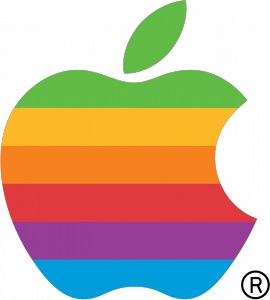What you should really copy from Apple
Instead of copying Apple’s physical products, other companies would be better off copying their unusual commitment to quality.
Datapoint: In my professional career I’ve worked with companies of all sizes and every single one of them wants to be more like Apple. Hell, in all of my work I want to be more like Apple.
So…Horace Dediu asks…why doesn’t anybody copy Apple?
Dediu makes a very important distinction: the distinction between copying a product and copying the product development process. Obviously every company in every industry that Apple competes in is copying their products to some extent. All phones are now like the iPhone. All tablets are now like the iPad. All laptops are now like Macbooks. All product marketing is now like Apple’s product marketing. Etc.
But that’s only copying the end result. And that’s not the same as copying the product development process that produces such results. I think it is safe to assume that most companies hope it is sufficient to copy the end result and not the process. (their behaviors suggests as much)
But as Michael Dell, Steve Balmer, and whoever runs Nokia, Toshiba, Blackberry, Rokio, Palm, HTC, etc, have found out, simply copying someone else’s product is not a viable long-term strategy. Even if you can copy a product like an iPhone, you haven’t even come close to catching up. You’ve caught up to two years before Apple released the product when they were actually designing the device. In total you’re about three years late.
So if everyone wants to be more like Apple, why don’t they? Dediu offers several reasons:
- Apple is not to be imitated because it’s not worth copying. I.e. Apple is not a successful company.
- Apple is successful but Apple cannot be copied because its success is a magical process involving sorcery.
I don’t like either of these explanations and neither does Dediu. So he offers a third possibility…that Apple is simply better than they’re letting on. I think this is right…and it’s reasonable given that nobody ever seems to know exactly what goes on out there in Cupertino.
Compare Apple’s excellence to Lebron James. Imagine being an NBA rookie who has been hailed as a prodigy all your life and you’ve been showered with praise since the day you could dunk. Now imagine lining up against Lebron James, who just recently went on one of the most amazing scoring stretches ever. You just became second fiddle and will stay second fiddle as long as Lebron is in the league. There is no satisfying way to explain how good Lebron is. Is it natural skill? Is it hard work? Is it competition? Is it luck? Yes. The answer is yes. And the same goes for Apple…they excel at everything.
The difference is that you can’t just copy Lebron James. You can’t just throw down 30 plus points every night. So in basketball there is a very clear ceiling to your talent…it is impossible to the “product” of those better than you. In electronics, however, it seems possible to copy a product like the iPhone. So that’s what everyone does, hoping to replicate the phenomenal market success that Apple has had. But you know what? I bet if you looked a little more closely, nobody is really, truly, faithfully copying Apple at all…they’re copying some version of Apple that exists in their heads. That’s why nobody has built an ecosystem that is as good as Apple’s yet.
What people should copy, instead, is Apple’s unwavering commitment to product quality. Apple’s commitment to quality has been clear since 1997, when Jobs came back to lead the company. Jobs said it again and again. Tim Cook is now saying it. That’s the key to Apple’s success…that they take a completely different approach from all the other companies who put profits first. Jobs started with the idea that quality products will find buyers, and so put quality above all else. Later (years and years later) Jobs looks like a genius that everyone wants to emulate.
But here’s the thing. If you compete on quality, your product will necessarily be different from others. You’ll find your own way, your own path through the markets you compete in. To be better than Apple you must look away from Apple, and instead find your inspiration from your customers, the world, or someplace else. That’s why copying is so deadly…it kills your enthusiasm for invention and the thrill of making something new while distracting you from what’s important. Copying not only signals a lack of imagination, it’s the symptom of bigger problems.
For companies that don’t have the ability to compete on quality, they end up copying someone else who does.
